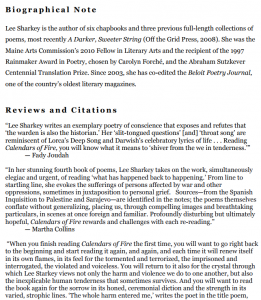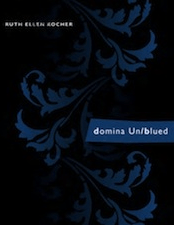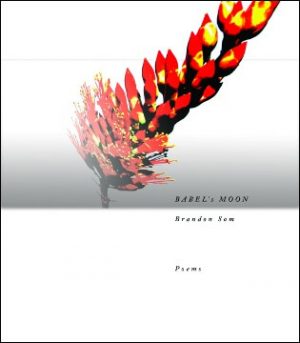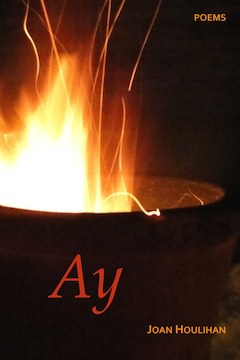Calendars of Fire
by Lee Sharkey
$19.95
“Calendars of Fire consists of narratives and lyrics, but not conventional story lines or single-pointed lyric ‘meditation,’ as it used to be called. Instead, the poems frame verbal syntheses of the stream of perceptions and emotions that pass uninterruptedly in and out of consciousness. Not just passing perceptions — such as a butterfly ‘with half of its wing shorn off’ or the realization that, for example, people in faraway places are suffering horribly — but also the moral experiences connected to the pain perceived.”— Dana Wilde, Small Press Review
Format: paperback
8 in stock
“Calendars of Fire consists of narratives and lyrics, but not conventional story lines or single-pointed lyric ‘meditation,’ as it used to be called. Instead, the poems frame verbal syntheses of the stream of perceptions and emotions that pass uninterruptedly in and out of consciousness. Not just passing perceptions — such as a butterfly ‘with half of its wing shorn off’ or the realization that, for example, people in faraway places are suffering horribly — but also the moral experiences connected to the pain perceived.”
— Dana Wilde, Small Press Review
“In the tradition of Adrienne Rich, Carolyn Forché, and other poets of witness, Lee Sharkey, in her new collection, Calendars of Fire, confronts human suffering in a voice both gentle and formidable. With eloquent diction and startling shifts in historical time and locale— from Serbia to Iran to the Maine woods and elsewhere—Sharkey compels us to listen and take notice, thereby stretching our consciousness.”
— Edythe Haendel Schwartz, Pleiades
“In Calendars of Fire, Lee Sharkey refuses to be that historian or activist, tamed in middle age, no longer pained by injustice. In the title poem, she explains, ‘It was what I wanted, the sobering fire.’ You may wonder how and why fire sobers, but then ask yourself, what do poets do best? They fight forgetting, silence, and isolation by paying attention—really paying attention, so much so that they make others nervous, including themselves.”
— Heather Dobbins, The The Poetry Blog
“Each poem is an attunement of physical, mental, moral and, indeed, spiritual perceptions of politics, genders, natural beauties, toils, hungers, wretchedness, that have been recognized, assembled, disassembled and framed in language as evocations of all manner of empathy, indignation, moral outrage, and love.”
— Dana Wilde, The New Maine Times
Calendars of Fire is an extended elegy whose grief is political as well as personal. Across barriers of tribe, history, and mortality, these poems carry us home with their music to a dwelling place in our own resonant bodies.
“Lee Sharkey writes an exemplary poetry of conscience that exposes and refutes that ‘the warden is also the historian.’ Her ‘slit-tongued questions’ combined with her ‘throat song’ are reminiscient of Lorca’s Deep Song, Darwish’s celebratory lyrics of life, and narratives all her own. When you are done reading her Calendars of Fire, you will know what it means to ‘shiver from the we in tenderness.’”
— Fady Joudah
“In her stunning fourth book of poems, Lee Sharkey takes on the work, simultaneously elegiac and urgent, of reading ‘what has happened back to happening.’ From line to startling line, she evokes the sufferings of persons affected by war and other oppressions, sometimes in juxtaposition to personal grief. Sources—from the Spanish Inquisition to Palestine and Sarajevo—are identified only in the notes; the poems themselves conflate without generalizing, placing us, through compelling images and breathtaking particulars, in scenes at once foreign and familiar. Profoundly disturbing but ultimately hopeful, Calendars of Fire rewards and challenges with each re-reading.”
— Martha Collins
“When you finish reading Calendars of Fire the first time, you will want to go right back to the beginning and start reading it again, and again, and each time it will renew itself in its own flames, in its feel for the tormented and terrorized, the imprisoned and interrogated, the violated and voiceless. You will return to it also for the crystal through which Lee Starkey views not only the harm and violence we do to one another, but also the inexplicable human tenderness that sometimes survives. And you will want to read the book again for the sorrow in its honed, ceremonial diction and the strength in its varied, strophic lines. ‘The whole harm entered me,’ writes the poet in the title poem, and ‘love branded my throat with tongues.’ As with the poet, so too her grateful readers.”
— Fred Marchant
Tupelo Press is pleased to provide the Calendars of Fire Reader’s Companion in free, downloadable PDF format.
EXCERPT:
With birds on his shoulders
He becomes the mind that will enact it
the wound traveling in a widening orbit
the will to keep silent that needs to speak
The future arrives—not in the motifs
of songbirds but in the falling off
from notes to intervals
Violation rises like a planet
its own sound something quiet
like sliding bodies into water
Download the free reader’s companion here.







